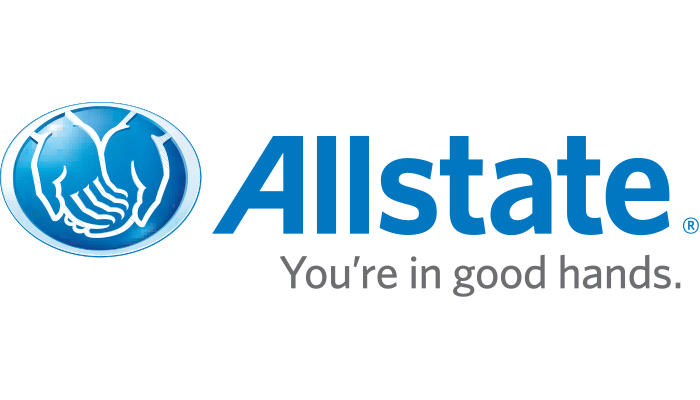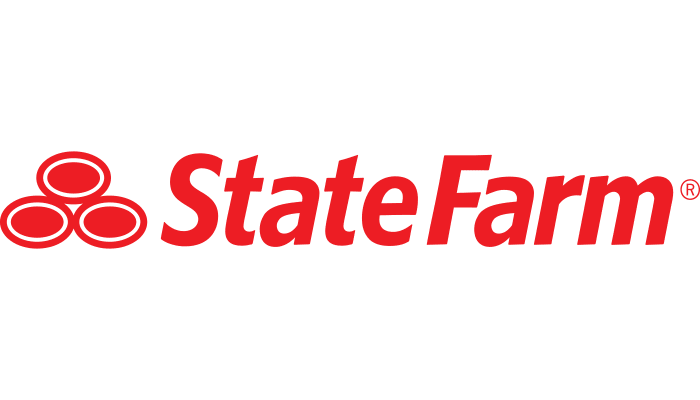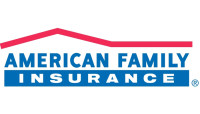Best Homeowners Insurance Companies of 2024
The best overall homeowners insurance company is State Farm because of its great customer service, cheap rates and excellent coverage options.
Find Cheap Homeowners Insurance Quotes in Your Area
10 best home insurance companies
The top home insurance companies include State Farm, Farm Bureau, Erie, USAA and Amica, which are reliable companies with great support.





ValuePenguin gathered quotes from the top insurance companies from all residential counties in the country.
Our unbiased editor's ratings are based on affordability, customer reviews and ratings, independent surveys, coverage options and availability.
Best home insurance company: State Farm
| Editor's rating | |
| Cost | $126/month |
| Online quotes |
Pros & cons
Why State Farm is great
Potential issues
Ratings
Cons
Pros & cons
Cons
Why State Farm is great
State Farm home insurance is the best all-around option for home insurance.
It combines good customer service with cheap rates, reliable coverage and a range of discounts. Plus, customers like their plans, which has made the company popular. State Farm is the largest home insurance company in 39 states and Washington, D.C.
State Farm is also the best choice for new homeowners because the company provides helpful resources to understand coverage rules and how policies work.
Potential issues
The main downside of State Farm home insurance is that its policy options are fairly basic. If you want to customize your policy, Auto-Owners will give you a better set of coverage options. And if you have an expensive home, Chubb is a better choice.
State Farm has also stopped selling home insurance in California. Even though its rates have been steady overall, State Farm may not be a good choice if you live in a high-risk area.
Ratings
| Claims satisfaction | Better than average | |
| AM Best | A++ | |
| Customer complaints | 7% fewer than average |
Find Cheap Homeowners Insurance Quotes in Your Area
Best for helpful local agents: Farm Bureau
| Editor's rating | |
| Cost | $220/month |
| Online quotes |
Pros & cons
Why Farm Bureau is great
Potential issues
Ratings
Cons
Pros & cons
Cons
Why Farm Bureau is great
Farm Bureau's friendly agents make it a great home insurance company if you want personalized service.
Farm Bureau has a wide network of agents that take a hands-on approach. They'll work with you to get you a home insurance policy, and they'll check in with you each year to review your coverage. This can help you stay on top of changes that can affect your policy, such as if you add a pool or get a dog.
Farm Bureau home insurance is also a great choice for families who want to bundle home and car insurance. It has cheap rates for teenage drivers, and you can combine deductibles for home and car insurance. So if there's a big storm that damages both your roof and car, you'll only have to pay one deductible.
Potential issues
Farm Bureau is not a great choice if you want to manage your policy online, without talking to an agent.
Plus, Farm Bureau's rates for home insurance policies have been getting more expensive in recent years. And you don't have as many options to customize your policy as you do with other companies. For example, you can't add on coverage for underground utility lines or water damage caused by backed-up pipes. If you want a policy with lots of coverage options, choose Auto-Owners home insurance.
Ratings
| Claims satisfaction | Unknown | |
| AM Best | A | |
| Customer complaints | 59% fewer than average |
Best regional home insurance company: Erie
| Editor's rating | |
| Cost | $165/month |
| Online quotes |
Pros & cons
Why Erie is great
Potential issues
Ratings
Cons
Pros & cons
Cons
Why Erie is great
Erie is one of the best homeowners insurance companies because of its very high customer satisfaction and great coverage.
Erie's home insurance policies automatically include extra coverage that you have to pay for with other companies. For example, you'll get guaranteed replacement cost coverage to pay to rebuild your home no matter how much it costs. Plans also include coverage for belongings that are stolen or lost. This helps you protect small items, like your phone or jewelry, as well as larger items that could get stolen from your home.
Potential issues
The main downside of Erie is it's only available in 12 states and Washington, D.C. So many people can't get a policy.
Also, Erie is not a good choice if you want to get insurance online. To get a quote or buy a policy, you'll have to work with an agent who sells Erie insurance. You also can't file a claim online, but you can use your online account to check the status of your claim.
Ratings
| Claims satisfaction | Excellent | |
| AM Best | A+ | |
| Customer complaints | 59% fewer than average |
Find the best homeowners insurance in your state
Best home insurance for military families: USAA
| Editor's rating | |
| Cost | $194/month |
| Online quotes |
Pros & cons
Why USAA is great
Potential issues
Ratings
Cons
Pros & cons
Cons
Why USAA is great
USAA is the best home insurance company for military members and veterans because it tailors coverage and support for service members.
The United Services Automobile Association (USAA) combines great features with outstanding customer service. You can manage your policy online, and USAA will also connect you with contractors to help with any repairs. This is a great perk if you have home damage while you're deployed.
Plus, USAA's home insurance policies automatically include replacement cost coverage, which pays the full cost to replace items that are damaged, rather than considering their age and condition and paying you less. Most other companies charge extra for this.
Potential issues
You can only get USAA insurance if you're connected to the military, including active-duty, National Guard, the reserves, a veteran or a family member of someone who's eligible.
USAA's home insurance is not as cheap as its car insurance. However, USAA's policies may still be affordable because they include more coverage, and the company offers many discounts. For example, you can save 15% for not having a recent claim, 10% for bundling with auto insurance and 5% for having a policy for at least three years.
Ratings
| Claims satisfaction | Excellent | |
| AM Best | A++ | |
| Customer complaints | 61% fewer than average |
Best home insurance company for customer service: Amica
| Editor rating | |
| Cost | $127/month |
| Online quotes |
Pros & cons
Why Amica is great
Potential issues
Ratings
Cons
Pros & cons
Cons
Why Amica is great
Amica is the best homeowners insurance company for people who value great customer service.
Amica is the highest-ranking insurance company for home insurance claims satisfaction from J.D. Power. So if something in your home is damaged, Amica's quick claims process and great service will help you get repairs made quickly.
Amica also has some of the best rates, along with a good set of discounts. There is also a unique option to get a policy that could refund you money at the end of the year, called a dividend home insurance policy. This could mean that you'd get 5% to 20% of your policy costs back. But sometimes you'll have to pay more each month for this type of policy.
Potential issues
The main downside of Amica home insurance is its limited coverage options. You can choose between two packages — standard or platinum. And there are a few customizations you can add on, such as coverage for water backups or replacing belongings if they're lost or stolen.
But some useful coverage choices aren't available, such as equipment breakdown or guaranteed replacement coverage to pay to rebuild your home, no matter what it costs.
Ratings
| Claims satisfaction | Best ranked company | |
| AM Best | A+ | |
| Customer complaints | 77% fewer than average |
Best for coverage add-ons: Auto-Owners
| Editor's rating | |
| Cost | $181/month |
| Online quotes |
Pros & cons
Why Auto-Owners is great
Potential issues
Ratings
Cons
Pros & cons
Cons
Why Auto-Owners is great
Auto-Owners home insurance policies have lots of options that help you to get exactly the coverage you want.
The variety of coverage options means you can get a policy that covers most types of damage. You can also build a policy with only the add-ons you want because coverage options are sold individually, rather than as a package.
Auto-Owners even has unique options, such as inland flood coverage. This is a great way for homes with low or moderate flood risk to get protection against water damage, without having to buy a separate flood policy.
Plus there are unique ways to save on home insurance, such as a discount for having a backup generator.
Potential issues
Auto-Owners home insurance isn't always the best deal. Rates vary widely based on where you live. Auto-Owners is cheap in Georgia and Colorado, but it's expensive in Indiana, North Carolina and Utah. If Auto-Owners is giving you expensive quotes, try State Farm, which has consistently cheap rates for most people.
And Auto-Owners' customer satisfaction is middle-of-the-road. You're not likely to have major issues because the company gets very few formal complaints. But it has an average rating for how it handles claims, so you might not have the friendly or efficient service that you'd get with Amica.
Ratings
| Claims satisfaction | Average | |
| AM Best | A++ | |
| Customer complaints | 66% fewer than average |
Best homeowners insurance for green repairs: Allstate
| Editor's rating | |
| Cost | $172/month |
| Online quotes |
Pros & cons
Why Allstate is great
Potential issues
Ratings
Cons
Pros & cons
Cons
Why Allstate is great
Allstate is the best homeowners insurance company to help you pay for energy-efficient home updates.
With Allstate's add-on for green improvements coverage, your insurance will pay for energy-efficient items, even if it costs more than what you currently have. So if you have to replace your water heater after it's damaged, Allstate will give you extra money to get a better water heater that's more energy-efficient.
Energy-efficient improvements can save you money for years by lowering your utility bills. That's why Allstate has a better green coverage option than Farmers and Travelers, which focus on one-time costs like using recycled materials.
Plus, Allstate's homeowners insurance rates are reasonable. And its many discounts can help you get a good deal.
Potential issues
Allstate's customer service is average, so you can expect a fairly typical experience when dealing with the insurance company.
Allstate might not be the best insurance for homes in high-risk areas. Allstate has stopped selling home insurance in California. It's also pulling back in Florida. So if you have a high-risk home and are able to get an Allstate policy now, potential changes in the future could mean that you won't be able to renew the policy.
Ratings
| Claims satisfaction | Average | |
| AM Best | A+ | |
| Customer complaints | Average |
Best homeowners insurance for high-value homes: Chubb
| Editor's rating | |
| Cost | $248/month ($500,000 home)
$454/month ($1 million home) |
| Online quotes |
Pros & cons
Why Chubb is great
Potential issues
Ratings
Cons
Pros & cons
Cons
Why Chubb is great
Chubb is the best homeowners insurance if you have an expensive home and want concierge-style service.
In addition to the standard types of home insurance coverage, Chubb offers specialty benefits such as wildfire defense, home scans to find issues, risk consulting and the option to get a cash payout if your home is destroyed.
Policies also include a property manager service for second homes at risk of hurricane damage. After a storm, Chubb can send an inspector to check your home, send you a report, start a claim for you and arrange for urgent repairs.
Plus, you can get high liability limits of up to $100 million so that you'll have protection if there's an injury on your property.
Potential issues
Chubb's coverage options aren't a good fit if your home has a moderate value or you need a typical home insurance policy. A company like State Farm is better for most people because you'll have coverage options that are more relevant and the ability to manage your policy online.
Ratings
| Claims satisfaction | Better than average | |
| AM Best | A++ | |
| Customer complaints | 32% fewer than average |
Best home insurance for smart homes: Nationwide
| Editor's rating | |
| Cost | $229/month |
| Online quotes |
Pros & cons
Why Nationwide is great
Potential issues
Ratings
Cons
Pros & cons
Cons
Why Nationwide is great
Nationwide stands out for its smart home discount and free home monitoring sensors.
Through your Nationwide home insurance policy, you can get free Notion smart home sensors to detect water leaks. This is a great way to catch leaks early to prevent damage. Plus, you'll save 10% on your policy just for using the device.
You can also get a discount on your Nationwide policy by having smoke detectors, fire alarms or burglar alarms. These don't need to be smart home devices to get the discount.
Potential issues
Nationwide's customer satisfaction isn't the highest available. It's still a good company because it has better-than-average claims satisfaction ratings and gets fewer complaints than typical. However, customers aren't as enthusiastic about Nationwide as they are with companies like Amica or Farm Bureau.
Plus, Nationwide's high rates for home insurance may mean that a policy is still expensive after discounts are applied.
Ratings
| Claims satisfaction | Above average | |
| AM Best | A | |
| Customer complaints | 21% fewer than average |
Best home insurance for renovations: American Family
| Editor's rating | |
| Cost | $195/month |
| Online quotes |
Pros & cons
Why American Family is great
Potential issues
Ratings
Cons
Pros & cons
Cons
Why American Family is great
American Family will lower your insurance rates if you've renovated your home systems in the past 15 years.
American Family has a unique discount that helps you save on insurance if you've replaced your plumbing, electrical and heating. And if you're currently fixing up your home, American Family offers a great add-on to cover home renovations. It will cover building materials and tools, even if they're in storage. It will also cover your home's foundation issues if it's damaged from the changing pressure in the soil around your home.
American Family's other great perk is a diminishing deductible, which gives you a $100 credit toward your deductible for every year you don't make a claim.
Potential issues
American Family's home insurance rates are generally expensive, but its many discounts can make policies affordable. The company offers more discounts than most competitors, including a smart home security system discount, a renovation discount, an age-of-home discount, a loyalty discount and payment discounts.
American Family doesn't stand out as having the best customer satisfaction. But it's still better than average for its claims process. That means you can trust it to come through for you if your home is damaged. However, you might still have some frustrations when working with the insurance company.
Ratings
| Claims satisfaction | Above average | |
| AM Best | A | |
| Customer complaints | 41% fewer than average |
Best homeowners insurance rates
State Farm and Amica have the best rates on home insurance, with an average cost of less than $130 per month, on average. Erie also has good rates, with an average of $165 per month.

Find Cheap Homeowners Insurance Quotes in Your Area
Rates for the best home insurance companies
Company | Monthly rate | |
|---|---|---|
| State Farm | $126 | |
| Amica | $127 | |
| Erie | $165 | |
| Allstate | $172 | |
| Auto-Owners | $181 | |
Rates based on a dwelling limit of $350,000. *USAA is only available to active-duty military members, veterans and their families.
How to find the best home insurance
Compare the best home insurance
When shopping for homeowners insurance, it's important to consider the amount of coverage you need and the reputation of each insurance company before comparing insurance quotes.
1. Decide how much home insurance coverage you need
All home insurance policies have four core coverages, in addition to extras like water backup coverage and identity theft protection.
Dwelling coverage pays for damage to the structure of your home that's caused by fire, wind or other sources covered by your policy. That includes damage to your walls, roof, siding, foundation and other parts that are attached to your home.
For example, repairs to your roof after a hailstorm would be paid for by your home insurance policy's dwelling coverage.
- Your dwelling coverage limit should fully cover the cost to rebuild your home, which is called the replacement cost. This means you'll be getting the right amount of insurance for your house, without being underinsured.
- Dwelling coverage can be either actual cash value or replacement cost. Actual cash value coverage is cheaper, but you'll get less from the insurance company because it considers aging, such as the value of a 20-year-old furnace. The best home insurance is a policy that covers replacement costs so you can avoid extra costs if you make a claim.
Personal property coverage protects your furniture, appliances, televisions, clothes and other belongings, except for vehicles.
- The amount of coverage is usually a percentage of your dwelling coverage, such as 20% or 50% of the cost to rebuild your home. For example, if your home's structure is insured for $200,000, your personal property would be covered for $40,000 to $100,000. Typically, insurance companies use a standard percentage for dwelling coverage.
- High-value items like jewelry often have specific caps. So if you have expensive items such as collectibles, technology or luxury goods, check if the policy's limits are high enough or if you need to add extra coverage.
Liability coverage protects you in situations with other people such as if someone is injured on your property or you cause damage to someone else's property.
- Liability coverage pays for your legal fees and damages, up to policy limits. A homeowners insurance policy's liability limits typically range from $100,000 to $300,000. But it's cheap to buy extra liability coverage.
- Get a policy with liability limits that are at least as high as your net worth, ideally higher. That will help you avoid a financial loss if someone sues you. Also consider any potential risks, such as if someone is likely to get hurt on your property. For example, if a child could get hurt at your swimming pool, you may want to have high liability limits in case there's an accident.
Additional living expenses coverage helps you pay for extra costs if you can't live in your home after a covered event, such as a house fire.
- This only pays for the costs that are on top of your normal living expenses if your home is badly damaged. For example, you may need a rental home or hotel, and you may have extra costs for food if your temporary space doesn't have a kitchen.
- The coverage protects you in a worst-case scenario so that you can avoid using your savings to pay for your extra costs while your home is being repaired.
2. Consider how important good customer service is to you
The best home insurance companies have great customer service. But you'll sometimes need to pay extra to get a policy from one of these top companies.
You'll likely be dealing with your insurance companies when something catastrophic has happened and disrupted your life. Helpful customer service agents make it easier to get back to normal.
Companies with the best customer service stand out for how helpful they are during stressful situations. The best companies:
- Are easy to deal with
- Answer your questions quickly
- Makes the claims process simple
- Sends payments quickly
Some top home insurance companies go above and beyond by helping to connect you with contractors to make the repairs or being compassionate when talking on the phone.
If you're concerned about an insurance company that has mixed or below-average ratings, look at multiple rating sources, such as the National Association of Insurance Commissioners (NAIC) and online reviews.
Also consider asking friends and neighbors about their homeowners insurance companies. Those who live near you often have the same insurance risks as you — such as weather or crime. They might have recommendations for good home insurance companies in your area.
3. Get quotes from the top home insurance companies
Compare multiple quotes to find the best home insurance rates, customer service and coverage options.
Comparing home insurance quotes is the last part of choosing a policy, and one of the most important parts. Home insurance rates can vary widely based on where you live and your personal details such as credit score and claims history.
- Even if a home insurance company tends to be expensive, it may offer you cheap rates. The opposite is also true. Cheap home insurance companies aren't cheap for everyone.
- Once you have home insurance quotes to know how much you'll pay, you can see which company has the best customer service you can get for a rate that's still affordable.
Frequently asked questions
What are the top five best home insurance companies?
State Farm, Farm Bureau, Erie, USAA and Amica are the top home insurance companies in the country. For most people, State Farm is the best home insurance company because it's highly rated, widely available and affordable.
Which homeowners insurance company has the best customer satisfaction?
Amica and USAA are the home insurance companies with the highest customer satisfaction ratings. Amica is better for most people because you can only get USAA if you're connected to the military. Both companies have top scores for how they handle claims, and they both get much fewer complaints than average.
What is the best insurance company for bundling home and car insurance?
State Farm and Allstate are the best companies for bundling home and auto insurance. State Farm's low rates for both home and car insurance mean that its bundles are very cheap. Allstate has the biggest potential savings, but it tends to have expensive car insurance, so its bundle might not be as cheap as State Farm's.
Methodology and sources
To find the best homeowners insurance companies, we compared the largest home insurance companies based on rates, reviews, ratings and financial strength.
- Reviews and ratings: Customer reviews and ratings give insight into what can be expected of a company’s claims process. You’ll want to select an insurance company that is highly reviewed and rated in order to ensure a smooth experience should you ever need to file a claim.
- Financial strength: A home insurance company is only as good as its ability to meet its customers’ claims. A company with great financial strength won’t have any problems paying out claims, whether a claim is for $100,000 or $500,000. On the other hand, a poor financial strength rating suggests that the insurance company might struggle to pay a customer’s claims, especially if there is a disaster where many homes are damaged.
- Rates: Home insurance rates depend on several factors, including the location of the home being insured and your previous claim history. Because of the range of the prices for home insurance, the analysis of the best companies focused on insurance companies that consistently offer low rates.
The cost of home insurance is based on rates for every residential ZIP code in the United States, from the largest homeowners insurance companies in every state. Unless otherwise noted, rates are based on a policy with $350,000 in dwelling coverage.
Coverage | Amount |
|---|---|
| Dwelling | $350,000 |
| Personal liability | $100,000 |
| Medical payments | $5,000 |
| Deductible | $1,000 |
ValuePenguin's analysis used insurance rate data from Quadrant Information Services. These rates were publicly sourced from insurer filings and should be used for comparative purposes only. Your own quotes will likely be different.
Editorial Note: The content of this article is based on the author's opinions and recommendations alone. It has not been previewed, commissioned or otherwise endorsed by any of our network partners.




















